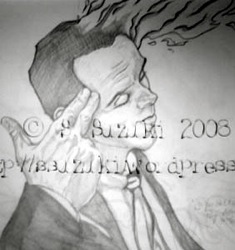Difference between revisions of "Attention"
From Nordan Symposia
Jump to navigationJump to search (Created page with 'File:lighterstill.jpg *1. a. The action, fact, or state of attending or giving heed; earnest direction of the mind, consideration, or regard; esp. in phr. to...') |
|||
| Line 1: | Line 1: | ||
| − | [[File:lighterstill.jpg]] | + | [[File:lighterstill.jpg]][[File:Pay-attention.jpg|right|frame]] |
*1. a. The [[action]], [[fact]], or [[state]] of attending or giving heed; earnest direction of the [[mind]], consideration, or regard; esp. in phr. to pay or give attention. The mental power or faculty of attending; esp. with attract, call, draw, arrest, fix, etc. | *1. a. The [[action]], [[fact]], or [[state]] of attending or giving heed; earnest direction of the [[mind]], consideration, or regard; esp. in phr. to pay or give attention. The mental power or faculty of attending; esp. with attract, call, draw, arrest, fix, etc. | ||
Revision as of 16:39, 25 October 2009
- 1. a. The action, fact, or state of attending or giving heed; earnest direction of the mind, consideration, or regard; esp. in phr. to pay or give attention. The mental power or faculty of attending; esp. with attract, call, draw, arrest, fix, etc.
- b. Metaph. (See quot.)
- 2. Practical consideration, observant care, notice.
- 3. The action of attending to the comfort and pleasure of others; ceremonious politeness, courtesy. Often in pl. spec. to pay attention or one's attention to: to court.
- 4. A matter of attention, a consideration. rare.
- 5. a. ‘A cautionary word used as a preparative to any particular exercise or manuvre.’ C. James Mil. Dict. to come to attention: to assume a prepared military attitude; so to stand at attention.
- b. to stand (at, to) attention: to stand in the military attitude assumed at the word of command ‘Attention!’ Also to draw oneself up, spring, etc., to attention.
